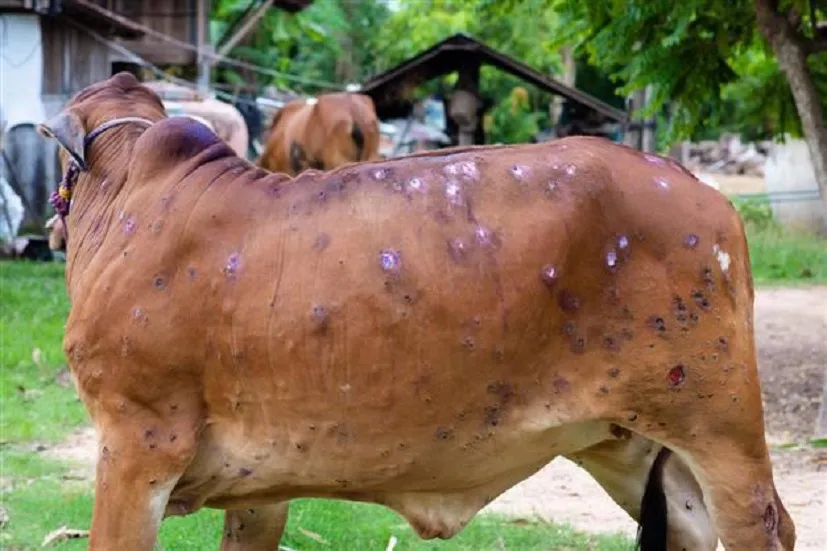Srinagar: Lumpy Skin Disease (LSD), an infectious viral ailment affecting cattle, persists in its grip on Kashmir for the second consecutive year, posing significant concerns for local farmers.
Farmers who spoke to the news agency KNO, expressed their worries. While the mortality rate associated with LSD is relatively low, the disease hampers milk production even after recovery, affecting the livelihoods of numerous families directly or indirectly reliant on cattle rearing.
Mohammad Ayoub, a farmer from Pulwama, shared that both of his cows had contracted the disease, and although they recovered, their milk production significantly decreased.
Ayoub pointed out that despite the low mortality rate, LSD weakens cows, rendering them unable to produce milk, consequently impacting farmers’ incomes.
Another farmer, Abdul Hamid, lamented the loss of his cow, which served as his primary source of livelihood. He revealed that hundreds of farmers have suffered similar losses.
Farmers are urging the government to provide compensation for their cattle losses and to vaccinate all unaffected cattle to prevent the spread of the disease.
An official from Animal Husbandry Kashmir informed KNO that 2,078 cases of Lumpy Skin Disease have been reported this year, with 83 resulting in cattle fatalities.
Pulwama and Budgam districts have been significantly affected, but no cases have been reported in Baramulla and Kupwara districts in North Kashmir.
The official also stated that the vaccination process is in progress, with approximately 878,977 cattle vaccinated across different regions of the valley. “There is a surplus of vaccines available, and vaccination efforts are ongoing,” the official stated.
Last year, Kashmir reported approximately 18,000 cases of LSD and 1,300 cattle fatalities.











